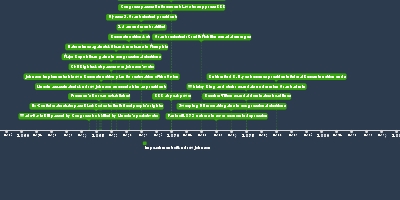African Americans begin gatherings to agree on "plans and terms for labor" (1 gen 1865 anni – 1 gen 1875 anni)
Descrizione:
Background:-many freedpeople had to return to former owners for jobs since they didn't have land to provide for themselves
Besides meetings:
-ppl traveled to find better jobs or ppl strikes
Wages:
-rock bottom wages replaced food, clothes, shelter
-South used to have wage-labor of north but now embraced it
-many black families starved
-sometimes planters had no money to pay wages, so they gave workers a share of the crop. Freedpeople paid rent in shares of the harvest
Conditions:
-african Americans said they would not put up with overseers, whippings, or regulation fo their private lives
-planters had no labor so they listened
Feminism:
-in slavery, white owners raped women
-african Americans didn't want women going back to the fields
-women said they could decide for themselves w/out husbands, acted as independent heads of households who embraced domesticity (although many had to work for wages)
-many tried to send kids to school and keep women ar home, but at harvest time most worked in the fields
Sharecropping:
-somtimes renters worked for use of land, house, implements, and sometimes seed and fertilizer. usually turned over 1/2 of crops to landowner
-renters had no way to make it through the first growing season without borrowing for food and supplies. They started out in debt and often stayed there.
-cotton prices fell in 1870s, more sharecroppers fell into debt
-Cotton can be raised by small farmers
-farms leased on a year-by-year basis, no one wanted to improve them so conditions were rough and renters were in debt from crop-lien system
Country storekeepers:
-bankrolled by northern suppliers
-middlemen to furnish sharecroppers w/ provisions, took as collateral a lien on the crop (assuming ownership of cropper's shared and leaving them only what remained after they paid debts)
-Crop-lien laws: Nineteenth-century laws that enforced lenders’ rights to a portion of harvested crops as repayment for debts. Once they owed money to a country store, sharecroppers were trapped in debt and became targets for unfair pricing/interest rates/bad bookkeeping. (laws seen in other countries who made cotton+sharecropping during Civil War like India and Egypt. Other countries like brazil and west Africa used sharecropping too)
-storekeepers conspired w landowners (or were the landowners) a lot, leading to debt being a pretext for forced labor
economic result of cotton dependence: stagnant souther farm economy that blighted the south's future
Aggiunto al nastro di tempo:
Data:
1 gen 1865 anni
1 gen 1875 anni
~ 10 years
